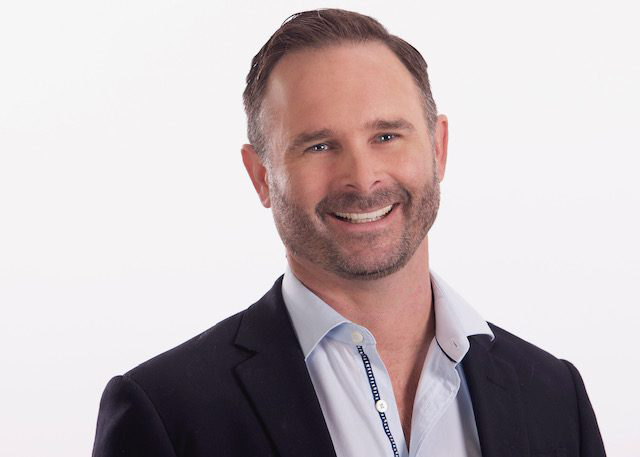When a loved one struggles with addiction, the ripple effects touch everyone close to them. Family members, friends, and caregivers often face emotional stress, confusion, and a sense of helplessness. This is where Al-Anon, a 12-step program specifically designed for those affected by someone else’s addiction, can be a vital source of support and healing.
At SEE Purpose Treatment, we recognize the profound impact addiction has on families and communities.
Understanding Al-Anon
Al-Anon is a mutual support group for individuals whose lives have been affected by someone else’s alcohol or substance use disorder. Founded in 1951, it provides a safe, non-judgmental environment where participants can share their experiences, learn from others, and find tools to cope with the complexities of addiction.
While Al-Anon is closely affiliated with Alcoholics Anonymous (AA), it is a distinct program tailored to address the unique struggles faced by loved ones. Its principles are rooted in the same 12-step philosophy that emphasizes acceptance, personal growth, and spiritual connection.
The Purpose of Al-Anon
Al-Anon’s primary purpose is to help members achieve peace of mind and emotional balance, regardless of whether their loved one is in recovery. Addiction often creates patterns of enabling, resentment, and guilt, which can be harmful to the well-being of the entire family. Al-Anon helps individuals:
- Regain control over their own lives.
- Set healthy boundaries.
- Cultivate emotional resilience and self-care.
- Let go of blame and guilt.
- Find hope and healing.
The Al-Anon 12 Steps
The 12 steps of Al-Anon mirror those of AA, with a focus on self-reflection and spiritual growth. Here’s an overview of these steps and how they relate to personal empowerment:
- We admitted we were powerless over alcohol—that our lives had become unmanageable.
Recognizing the limits of control is a vital first step toward healing. This admission is not about surrendering to hopelessness but about freeing oneself from trying to fix or control another person’s addiction.
- Came to believe that a Power greater than ourselves could restore us to sanity.
Al-Anon encourages members to explore a sense of spiritual connection, whether through faith, nature, or personal beliefs, to find strength and clarity.
- Made a decision to turn our will and our lives over to the care of God as we understood Him.
This step emphasizes trust in a higher power, providing comfort and guidance in moments of uncertainty.
- Made a searching and fearless moral inventory of ourselves.
Participants reflect on their emotions, behaviors, and patterns, gaining insight into how they’ve been affected by their loved one’s addiction.
- Admitted to God, to ourselves, and to another human being the exact nature of our wrongs.
Sharing these realizations with someone trustworthy fosters honesty and accountability.
- Were entirely ready to have God remove all these defects of character.
This step is about letting go of harmful emotional patterns, such as resentment or fear, that may have developed over time.
- Humbly asked Him to remove our shortcomings.
Through humility and self-awareness, individuals seek personal growth and healing.
- Made a list of all persons we had harmed and became willing to make amends to them all.
Acknowledging the impact of one’s actions on others is an integral part of emotional recovery.
- Made direct amends to such people wherever possible, except when to do so would injure them or others.
Taking responsibility for past actions helps rebuild trust and strengthen relationships.
- Continued to take personal inventory and when we were wrong promptly admitted it.
Maintaining self-awareness ensures ongoing growth and accountability.
- Sought through prayer and meditation to improve our conscious contact with God as we understood Him.
Regular reflection and connection with a higher power provide inner peace and direction.
- Having had a spiritual awakening as the result of these steps, we tried to carry this message to others and to practice these principles in all our affairs.
Sharing one’s experience and growth with others fosters community and hope.
How Al-Anon Works
Al-Anon meetings are held worldwide, often in person or virtually, and are free of charge. These gatherings are confidential, allowing members to speak openly without fear of judgment. Meetings typically include:
- Sharing Experiences: Members share their stories, challenges, and insights to offer mutual support.
- 12-Step Work: Discussions and reflections based on the Al-Anon 12 steps.
- Literature and Readings: Guided readings from Al-Anon-approved texts provide inspiration and guidance.
Members are not required to follow a strict timeline for completing the steps; they are encouraged to progress at their own pace.
The Benefits of Al-Anon
Participation in Al-Anon can be transformative, offering numerous benefits:
- Emotional Healing: Members learn to process their feelings of anger, sadness, and fear in a supportive environment.
- Stronger Relationships: By setting healthy boundaries and fostering open communication, participants often see improvements in their relationships.
- Empowerment and Resilience: Letting go of the need to control someone else’s addiction allows individuals to focus on their own well-being.
- Community Support: Connecting with others who share similar experiences reduces isolation and creates a sense of belonging.
How Al-Anon Complements Addiction Treatment
At SEE Purpose Treatment, we encourage family involvement in the recovery process. Programs like Al-Anon provide loved ones with the tools to heal alongside the person in treatment, creating a more supportive and understanding environment. When families and individuals work together toward recovery, the chances of long-term success improve dramatically.
Al-Anon offers hope, healing, and empowerment to anyone affected by a loved one’s addiction. By embracing the 12 steps, individuals can reclaim their sense of self, nurture their emotional health, and build a brighter future.
If you or someone you love is navigating the challenges of addiction, SEE Purpose Treatment is here to help. Contact us today to learn more about our comprehensive programs and how we can support your journey toward recovery and renewal. Together, we can create a foundation for lasting healing.




